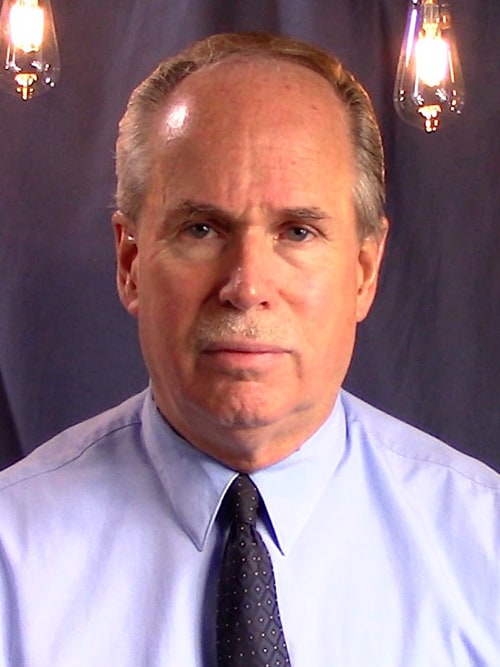Most of us are quite familiar with the old saying about ‘assuming.’ In fact, the rather biting truth about that saying has likely bitten us more than once. Yet despite this rather endearing bit of truth (as well as the scars that we carry around with us that evidence it as true), we nonetheless go through life making a sizeable amount of assumptions that have a sizeable impact. As Denis Waitley wrote, “You must stick to your convictions, but be ready to abandon your assumptions.” Sadly we regularly confuse the two, living in the laziness of assumptions sloppily labeled as convictions.
What Are Assumptions?
Assumptions are cursory conclusions that are arrived at based on an amalgamation of baser and less than robust thought processes. These thought processes are typically fouled by twisting biases, dictated by rogue stereotypes, fed by various rumors, and seasoned by cultural prejudices among other things. We tend to grab these somewhat spurious thought processes, toss them together and throw out whatever pops out. And because this is frequently the course by which our assumptions are created, we would be entirely free of assumption to state that assumptions are quite flawed.
However, this process of developing assumptions appears to be missed or justified due to the fact that over time we completely confuse these tainted thought processes with things such as cultured wisdom, a penetrating discernment, tested intuition, and a refined acumen. And because we assume that these rather regal thought processes are what has crafted our perspectives and subsequently driven our decisions, we assume that we’re not assuming, which in and of itself is a terribly flawed assumption. We are then left believing that we have engaged in a thought process of the most responsible sort when we have likely engaged in assumptions of the most irresponsible sort.
Agendas as the Birth Place of Assumptions
Often at the core of our assumptions rests our agendas. Our agendas dictate what we want life to look like, with the equally potent agenda of what we want ourselves to look like. We then develop a composite collection of assorted assumptions that serve to support these agendas. We create tidy boxes that we assume everything should neatly fit into. We construct pre-packaged biases that we assume will easily and conveniently categorize everyone’s behaviors. We tediously outline some pre-determined pecking order that we assume will allow us to quickly size-up and tidily pigeon-hole everybody that we meet. We develop ‘righteous’ goals that we assume are wholly committed to the betterment of man, even if most of the unfortunate people that we run into lack the vision to grasp that fact.
And it is our agenda of what we want life to look like and what we want ourselves to look like (whatever all of this might be) that births, guides and subsequently feeds these various assumptions. Through this nurturing process we gradually legitimize these assumptions through adherence to them over time, our continual refinement of them, frequent academic or informational investigation that is often biased in the direction of the assumption, and a myopic evolution where in time we can see nothing else but these assumptions. And because we have slowly legitimized these assumptions through this unconscious thought process, in our minds they gradually move from opinion to fact.
Once we’ve assumed that these assumptions are fact, we are then endowed with some sort of card-blanc permission to liberally dispense them without the kind of cautious contemplation that opinion might demand of us. And now we’re about the rather frightening business of dispensing our assumptions disguised as fact, which does not and cannot make our assumptions any less than assumptions, despite our assumptions to the contrary. Because we’ve legitimized our agendas by converting our assumptions to facts, we become dangerous. And that danger is no assumption.
The Danger
We’re not likely to question our agendas because they have become facts. But more fundamental than that, we’re not likely to question them because in doing so we would have to question the sum total of our agendas. Questioning our agendas would likely mean that we would have to question the foundational principles upon which we’ve built the entirety of our lives. It means that we would be forced to face the world as it is, not as we would like it to be. More problematic than that, that means that we would have to face ourselves as who we actually are, rather than who or what we’d like to be. And so we adamantly adhere to our assumptions because they support the agendas that we are far too insecure and infinitely too frightened to question.
We are then forced to live in a world that we’re really not living in, being people that we are not, making other people out to be what they’re not, seeing situations as something other than what they really are, and missing the whole of life through the whole process. Because we throw around assumptions based on our agendas, we can’t change anything because we don’t have an accurate understanding of what we’re changing or if it really needs to be changed at all. We become bellicose and belligerent, thinking that we have all the answers to all the questions if people would just be smart enough to do what we say. We can alienate relationships, damage lives, run rogue through organizations, trample trust, and stomp on the best of intentions all based on errant assumptions driven by our selfish agendas that we’ve labeled as facts and are too fearful to see as anything but facts.
And So, What to Do
I must first ask if I am so weak that I can only survive by creating agendas that protect me from the real world and make me something other than what I am. Do I perceive myself as so inadequate or ill-prepared that I must avoid the real world and my real self in order to live out even the most marginal existence? If I look closely, this need not be the case.
Second, I must begin to believe that the real world is in reality begging to be changed if someone brave enough would step up and do it. And I must realize that it is the same for me. While the world is a tough place, the world is also a hurting place. And the world out there as well as the world within is looking for champions that would cause me to believe that it can be different. If I look closely, I will soon realize that I can be that champion.
Third, I must abandon all assumptions, despite how tantalizing and comforting and soothing they might be. The rationale for such a bold course of action lies in understanding the inherently flawed nature of assumptions, and that such flaws will always do more damage than good.
Fourth, I must craft agendas not based on my agendas. I must look at the reality of the world around me and craft agendas that are based on the best interest of that world that I see around me. This is nothing less than sacrificing our lives for the betterment of others, understanding that such an action may not in reality better our lives. Yet, it is in the price paid for others that I discover the most profound growth.
Finally, I must not let the assumptions of others become my assumptions. While it would be significantly easier to fall in step with others and be embraced by them as I embrace their agendas, I must be willing to court rejection if that be the price of refusing the assumptions of others.
Diligently adhere to these and your life will change. Be assured, that is not an assumption.

 Craig Lounsbrough
M. Div., LPC
Craig Lounsbrough
M. Div., LPC